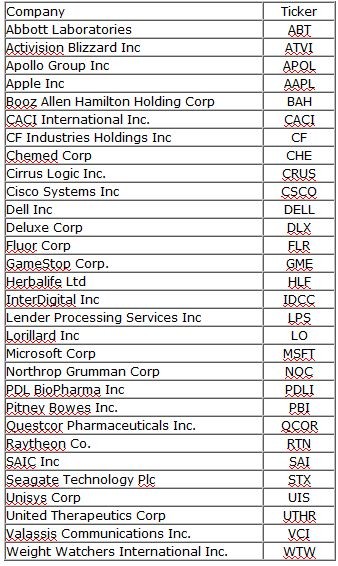Morningstars Look at Magic Formula Investing
Post on: 3 Июль, 2015 No Comment

Mar 30, 2010
Joel Greenblatts book The Little Book that Beats the Market . in which the Magic Formula Investing (MFI) strategy was revealed to the world, was first published in December 2005. After an initial rush of publicity, the strategy has largely been relegated to the background since then, despite continuing to vastly outperform the market since it was made public. Only recently are we seeing some of the more mainstream investment media start to discover and write about it, probably due largely to the publicity push behind Greenblatts Formula Investing venture to provide do-it-for-me services for those interested in MFI.
This can be seen recently in a piece published by Morningstar looking into the Magic Formula. Morningstar is most widely known as a company that tracks, rates, and provides data on the thousands of different mutual funds out there, though they also have services that provide equity and ETF ratings. I was rather surprised it took the site over 4 years to write anything substantial about MFI, as their equity review service is highly skewed towards the value investing principles of Warren Buffett, who was tutored by Benjamin Graham, from whom MFI is inspired.
Graham to Greenblatt, For the Win
This Graham-to-Greenblatt connection was something I had not heard about before, but makes perfect sense. Benjamin Graham is often referred to as the father of value investing, penning such classic investing books as Security Analysis and The Intelligent Investor . the latter of which Warren Buffett has called the greatest book on investing ever written. According to Morningstars article, Ben Graham gave an interview in The Rediscovered Benjamin Graham where he cited a formula that had investors choose stocks with a P/E ratio less than 10 and an equity-to-assets ratio over 50%. Stocks would then be turned over when they appreciated 50%, or when they reached a 2 year holding period.
Clearly this formula closely matches MFI. It involves 2 components, one for valuation and the other for business quality, like MFI. In this case, Graham is looking more at financial strength than business efficiency. As Morningstar points out, requiring a 50% equity-to-assets ratio also eliminates banks, which MFI does as well. The requirement would eliminate numerous Magic Formula stocks, particularly the ones with less-than-stellar balance sheets (Providence Service Corp PRSC and Weight Watchers WTW come to mind).
While there is no long-term back-test available for Grahams magic formula, a 1974-1980 back-test found that it nearly tripled the returns of the market over that period!
MFI vs. the Managed Fund Universe
Most interesting is to see how Morningstar compares the historical back-tested returns of MFI to similar returns from their top rated managed mutual funds.
Briefly summarizing, MFI smoked the entire field. The annualized return for MFI from 1988 to the end of 2009 has been a remarkable 19.9%, vs 9.4% for the S&P 500. Morningstars highest rated fund, Federated Kaufmann (KAUFX), returned an annualized 15.52% over the same period, meaning MFI outperformed the cream of the crop by 4.4% annually! To put that in perspective, 4.4% annually on an initial investment of $25,000 would be worth nearly $62,000 over a 21 year period.
The article continues on to opine as to why actively managed funds so vastly underperformed what is an extremely simple and completely mechanical investing strategy. I think there are some valid points here. The most important is that it makes little sense for a mutual fund running tens of billions of dollars to initiate a position in a company with a $100 million market cap — the impact of gains is just too small.
The takeaway for MFI investors from the article is nearly universally positive. MFI matches tenants of a similar market-beating strategy by a legendary investor. MFI has not just outperformed, but vastly trounced both the S&P and virtually every managed mutual fund over the past 21 years. And, finally, the strategys focus on small-cap stocks is a key advantage for individual investors that cannot be duplicated by the big money managers.
Get our stock reviews and other Magic Formula focused content delivered FREE to your inbox. Sign up for the MagicDiligence Newsletter! For a limited time, you’ll also get the FREE report, 5 Quick and Easy Tips for Improving Your Stock Picks.
Get Your FREE Report Now














